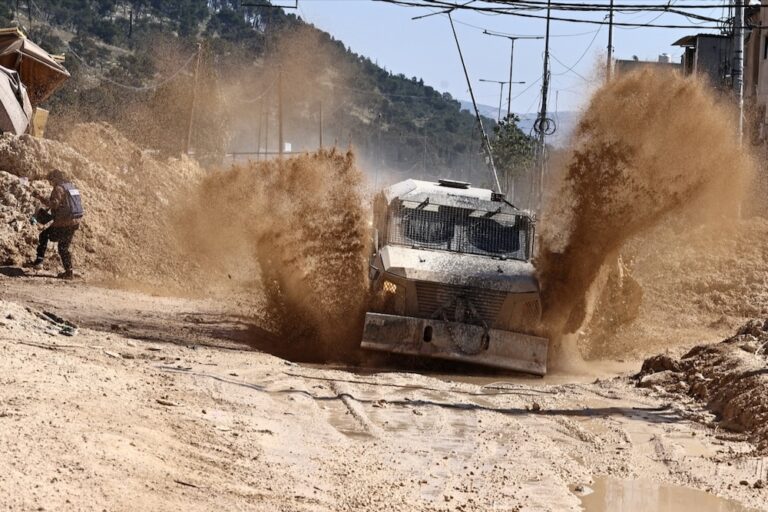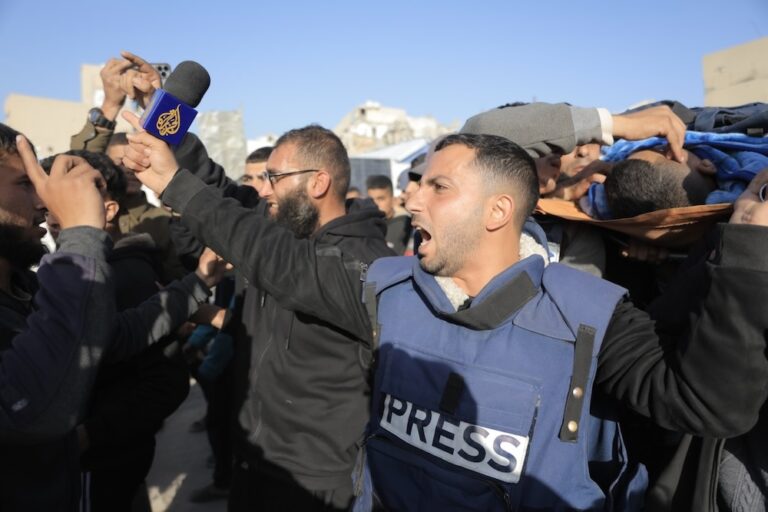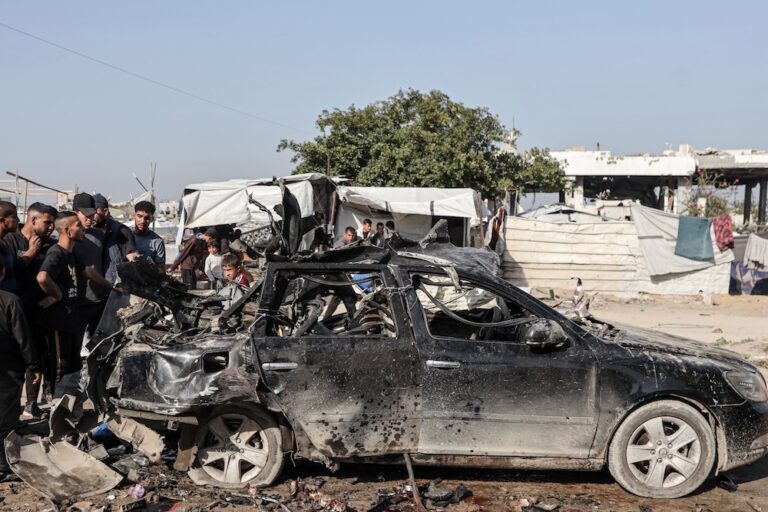In its semi annual report on violations against Palestinian journalists, the Palestinian Center for Development and Media Freedoms (MADA) has monitored 113 violations since the start of the year 2013.
The Palestinian Center for Development and Media Freedoms (MADA) published its semi annual report on the state of media freedoms in Occupied Palestine, and announced it during a press conference held at MADA’s headquarters in Ramallah on 16 July 2013.
MADA’s general director, Mousa Rimawi, kicked off the press conference with a few opening remarks:
“The state of media freedom in Occupied Palestine still raises concerns in terms of the numbers and types of violations committed against Palestinian journalists. Violations against Palestinian journalists are one of the highest globally, and are life-threatening. Palestinian journalists are constantly concerned for their life and safety, especially those who cover peaceful demonstrations and the activities of popular resistance against the occupation, settlements, and the apartheid wall. Regardless of these threats, Palestinian journalists never back down and continue to exercise their profession and duty, and they have earned appreciation and many awards for their courage.”
Rimawi then mentioned that violations during the first half of the year 2013 have increased comparing to the same period in 2012. MADA monitored 113 violations which is an increase of 11 violations in comparison with 2012. Israeli violations numbered 78, while the Palestinian factions numbered 35.
Rimawi noted that the Israeli Occupation’s violations embodied five forms, namely: Physical abuse, arrest, detention, prevention from coverage, and prosecution. As per the usual, physical assault on journalists formed the largest percentage of violations committed by the occupation in a certain year. 43 attacks were of that nature which translates into 54.4 per cent.
Rimawi pointed out to the audience that, “the Israeli Occupation’s insistence on continuing its attacks on media freedoms is due to its desire to blur the truth and hide its constant attacks on the Palestinian people’s rights, which is a main reason for the increase in its violations against media freedoms during the past years. Another reason for this increase is the international community’s forgiving attitude towards the continuous and rising Israeli violations against freedom of the press.”
In regards to violations committed by Palestinian factions, MADA monitored 35 press freedom violations during the first half of 2013, whereby arresting journalists was the leading type of violation with 16 cases of arrests; a higher number when compared to 2012.
Rimawi followed up on this by saying that, “although the number of Palestinian violations in the past three years show a significant decline in this area, the nature of the violations is still of concern, and indicates a problem with the lack of awareness regarding the right to freedom of expression as a fundamental human right”.
Rimawi noted that most Palestinian violations have occurred in the Gaza Strip, where 25 violations were exposed which translates to approximately 71 per cent of all violations committed by Palestinians. It should also be noted that most of the recorded violations were committed in the month of January, where the internal security services of the Hamas government in Gaza arrested and interrogated 12 journalists.
“In the West Bank, MADA has observed a sort of improvement in relation to media freedoms,” said Rimawi, “however, one must still place emphasis on the trend of troubling violations impeding the improvement of the state of media freedoms, such as internet censorship and sentencing journalists to prison, as in the case of Mamdouh Hamamrah, and the arrest of journalist George Canawati, for publishing statements on Facebook.
Rimawi pointed out that when journalists are threatened with murder by an unknown person, they experience intense bouts of stress, as in the case of Palestine Public TV’s crew which was threatened with murder and found a bomb placed outside the house of one of the crew members.
He added, “What worries us is when police officers resort to the torture of a number of journalists during their detention in the Gaza Strip, especially during January, when they returned to this method of punishment prohibited by international laws. Resorting to torture is not only worthy of condemnation, but also of holding those responsible accountable. According to MADA’s research, torture had previously declined in the past couple of years.”
Another factor that negatively impacts journalists and media freedom in Palestine is the lack of an appropriate legal environment for media staff to work in in Palestine. The country lacks laws governing the work of the media, except for the Press and Publication of 1995, which requires some amendents to be at the level of the modern day media scene and to become in line with international standards. In addition, the Jordanian Penal Code that has been enforced in the West Bank since 1960 allows for the imprisonment of journalists and forms a burden and an obstacle to media freedoms.
Palestinian media organisations still face many difficulties in the absence of an Access to Information law. MADA recently drafted one, making it compatible with international standards, after two years of hard work.
Rimawi wrapped up the press conference by thanking the Open Society Foundation (OSF) for its support with the report, and thanked all Arab and international organizations who stood by Palestinian journalists, and supported their right to exercise their professions freely and safely.


